The best in poetry, (and poetic things), this week with Matthew Kreider.
1 Art
When I was in college, my eyelids often weighed more than my backpack. The top floor of the library provided me a place for quiet and rest. I remember slowing down as I listened to the low-frequency hum of the air unit, the rubbery slide of elevator doors and the rustling of page turns. I drifted off and drooled quite a bit during those naps. Now, after scrolling through 25 of the world’s most beautiful college libraries, I’m drooling again, but more from lust than a need for rest.
Color wakes me up. It refracts my attention. And yet many Americans have a penchant for jumping into the grey and beige puddles of subdivisions. But the Italians! The Italians know how to pay attention. Can you find the poems inside these pictures of Italian Colour?
2 News
Every writer counts on earning posthumous fame, right? Not for selfish reasons, either. We merely want to leave our descendants with a fortune the size of a Russian novel. But even if our royalties never rise from the dead, maybe our progeny will at least find a job. Here’s one publisher set to release a collaboration between the descendants of Dickens and Tolkien.
Today is National Poem in Your Pocket Day. In an age of smart phones, think of the number of poems we can fit into our pockets now. Still, my hunch is that some of my most dearly beloved poets wouldn’t have an inkling such a holiday existed. They’d just be walking down the river, by themselves, with a pocket full of sunflower seeds.
3 Publishing
You want to write a book. The walls of your study are tacked up and covered with torn pages from the most flourishing fiction titles of the last 100 years. You comb through syntax, themes and genres. You must crack this code and determine the x factor responsible for creating a best seller. But there’s a better way. Hit Lit by James W. Hall is a helpful examination of a century’s worth of successful books. From To Kill a Mockingbird to Twilight, he claims these powerhouses share 12 features.
But maybe it all comes down to food? After listening to The Splendid Table on public radio this past weekend, I reveled in how buttery suggestion and steamy imagination can sizzle on a white plate. Writers can learn a lot from foodies. This savory list of the Best Food Books of 2011 might have you writing like a foodie musicologist in no time.
4 Business
We don’t normally think of the practice of human resources as the stuff of poetry. But if you listen carefully to the HR manager’s language and craft, you’ll hear a social poet at work:
“Continually diagnosing where your people are in the development cycle and flexing your leadership style to meet their specific needs are steps that are paramount to your ability as a leader to develop your peak performers.”
We all need to be well-versed in knowing How to Get the Best People on Your Team, and Keep Them.
Because distractions prey in coffee shops and search engines, you might be interested in these distraction-blocking apps and other defensive tactics to help you manage your time. They’re just one click away. Please ignore any inbox dings until you get there.
5 Creativity
Although Sylvia Plath enjoyed wearing an apron in the kitchen, she also felt its heavy domesticated tension hang from her waist. Now you can taste for yourself how creativity springs to life in the kitchen, even from the pages of The Joy of Cooking. Sylvia Plath’s “Lady Lazarus” was penned while baking this recipe for lemon pudding cake.
Kitchens nag. Ad infinitum. Right now my counters are peppered with coffee grounds, and my sink basins are constipated with red sauce and dirty pots. But these mundane rhythms of cooking and cleaning are good for creativity, when we get around to doing them. Novelist Haruki Murakami says, “The repetition itself becomes the important thing; it’s a form of mesmerism. I mesmerize myself to reach a deeper state of mind.”
6 Write-It
Now it’s time for a walk — a poem walk. Force your ex-lover to leave the restaurant. Invite your newborn to crawl to your feet. Or maybe even woo that old, bronze-eyed “Marathon Boy” with a fresh toga and a pair of sandals.
Fit inside someone’s skin and write a persona poem. Here’s one example written from the perspective of a convicted murderer. You can watch a video of the poet reading the poem.
7 Poems
A poem a day keeps the doctor away. Dr. Milton Ehrlich is a psychologist who understands poetry is good for the brain, even when it becomes a “mad obsession”. After you read Ehrlich’s “Vintage Lovers”, hop on over to Every Day Poems, your local poetry pharmacy, and pick up a daily subscription. Your body will thank you for it.
Of course, the psychologist has no monopoly of understanding when it comes to the health benefits of poetry. In “Regarding the Mandala” by Catherine McDonald, consider the ascetic:
“the monk who, tools in hand, turns
away from his work
to stroke the child’s curved cheek.”
8 People
The clean, uncomplicated design of Apple’s computers and software doesn’t typically conjure up any hurly-burly for their users. A closer inspection of the life of Steve Jobs, however, reveals an ambitious and steely reign still worthy of Shakespearean drama.
An interviewer placed two hypothetical prizes on the table for Pablo Neruda. He was asked to choose between a presidency and a Nobel Prize. “If they put them on the table in front of me, I’d get up and sit at another table, ” said the Chilean poet and politician. And which of his literary works would he save from a fire first? “Possibly none of them. What am I going to need them for? I would rather save a girl.” Read Pablo Neruda’s “The Art of Poetry, No. 14” interview at The Paris Review.
9 Education
Does poetry still have a spot in public education? One high school senior said, “When I was reading a lot of Shakespeare, I actually started to think in strange sentence orders.” But in an environment of state standards and high-stakes testing, poetry often gets lost in talk of math and science curricula. What do you think? Do students need more poetry?
A number of university professors think so. They’re offering online poetry courses, creating Stanford-esque opportunities for hundreds of thousands of students. One professor says,
“Poetry is really good in this setting because you can read it alone and get so much out of it, and be perfectly fine with it, but the next step was [to] hang out with some intuitively smart people and collectively — together, collaboratively — let’s read the poem together.”
He knows he can’t read thousands of essays, but the collaboration and comments will allow the best to rise to the top. In the meantime, the masses participate in poetry.
10 Sound n Motion
Poets have grand conversations. Poets On Poetry (P.O.P.) “is an evolving conversation between and about poets. Each poet answers anonymous questions by leaving a new question for another poet.” Let’s have more of this.
Have you clocked 10, 000 hours of writing yet? Okay, delete your spreadsheets, take a deep breath, and watch this latest episode of Yuvi Zalkow’s Failed Writers Series. You won’t be writing, but you will rack up some laughter here. And possibly an epiphany.
Photos by Claire Burge. Used with permission. Post by Matthew Kreider.
___________
Buy a year of Every Day Poems, just $2.99— Read a poem a day, become a better poet. In April we’re exploring the theme Candy.
- Casting a Line for Surrealist Poetry - November 12, 2012
- The History of the World in Beer - October 22, 2012
- Journey into Poetry: Matthew Kreider - July 23, 2012

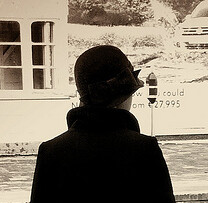
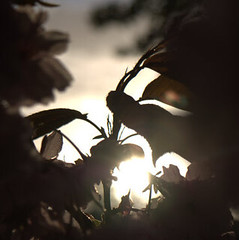
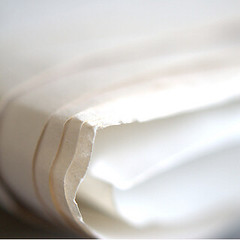

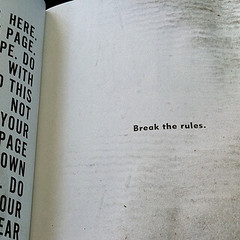
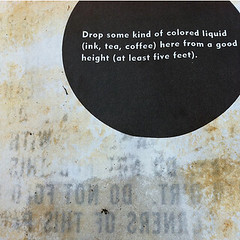




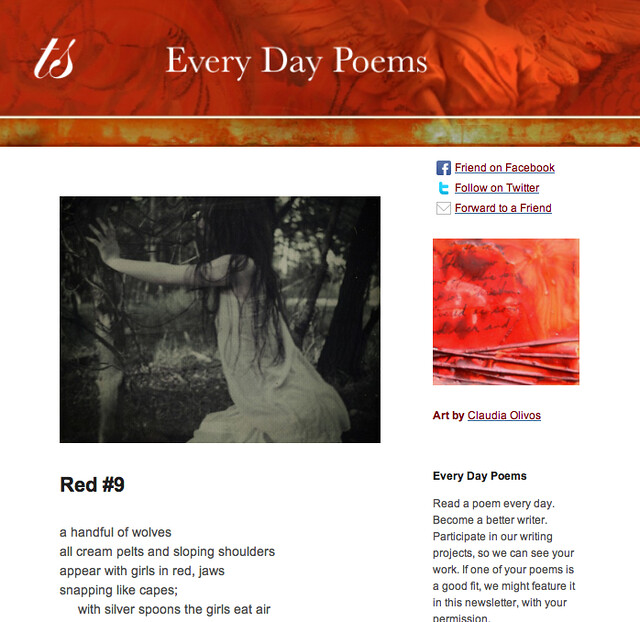
Megan Willome says
I love Neruda’s assertion that when he write of a dove, it’s a dove, and when he writes of a guitar, it’s a guitar. That quote should be required reading for English teachers everywhere!
L. L. Barkat says
Megan, yes! 🙂 Of course, these images accumulate emotions and suggestions beyond themselves. At least mine always seem to. But it begins with the image itself.
Matthew, that 10,000 hour video totally made me laugh. And I don’t even have any diapers to change around here anymore. Oh, but I’ve got plenty of baby-writing that needs my attention. 🙂
Matthew Kreider says
Megan & L.L. – An image has a beginning and end, doesn’t it? It comes to us with innocence and purity. But before long, it gets decorated and dirty. These images grow up like children. What do we do with them?
L.L. – We wrapped our babies in Fuzzy Buns, those cute and colorful cloth diapers with the handy snaps. Even so, changing them was so gross and inconvenient. Writing is like that, I guess. 🙂
Maureen Doallas says
Good stuff, Matthew!
Italy is a poem, and all those wonderful images leave me wishing I were there again.
Matthew Kreider says
Maureen – Are you organizing the next poetry tour for T.S. Poetry? It’s probably time.
Kimberlee Conway Ireton says
Oh Matthew, such wonderful stuff here! Those photos of Italy? Gorgeous! Almost edible. Like those yummy-looking lemon tarts (though I suppose I should be put off by those, given the connection?)
I love that poetry makes your brain healthier! Reminds me of Laura Boggess’s serialized short story here on Tweetspeak last fall. She’s prescient 🙂
As for teaching kids more poetry? “Education is the science of relations” (Charlotte Mason). Let’s give them as many relations with life and literature and everything else that we can. The wonderful thing about poetry (and fiction, too) is that it can reach into so many different subjects, illuminating them in new ways and making more relations come to life. So yes–more poetry, please!
Danelle says
I am moving into that library at Emory. It is the closest to my home and I can still visit my family. Sometimes. 😉
I ached, physically ached, looking at all the beautiful libraries. I am a bit of a library addict. When I was pregnant with my first son I woke up from a horrible nightmare. The worst possible nightmare (in my very new mom, completely irrational mind). . . I had a little boy who was screaming and crying that he didn’t like the library.
Both sons love them.
And I agree with Kimberlee on teaching kids more poetry. Absolutely.
Matthew Kreider says
Kimberlee – You bet. Poetry is all about relationships, new ones, old ones, even unknown ones. I wish poetry had a stronger presence in public education. As a high school teacher, I’ve been watching how reforms have pushed both fiction and poetry off to the side. Now, nonfiction abounds in the classroom because nonfiction abounds in state assessment testing.
Our culture seems to have a hankering for clearly defined relationships. Even on Facebook. But poetry is ultraviolet. Even if education doesn’t see those rays, the rays still exist. And matter.
Matthew Kreider says
Danelle – Yay! Someone commented on the libraries! My body, too, had a “reaction” to the pictures. The college library is the hallowed ground of secular culture. My old library was a special place. The glass walls. The river. The sparkling quiet.
Good to “see” you, Danelle. 🙂
Charity Singleton says
Matthew – Another brilliant list! I was one of the few people who actually studied in the library on my campus. I think there were a number of people looking for a nap there, too, though.
Regarding you section on publishing, did you know there is a whole “genre” of books now that are basically food fiction? They are kind of like “chick lit” but they all include food. I’ve read half a dozen or so – the most recent was just last week and it was called “Eat Cake.” They are fiction with an underlying food theme, and they all actually include recipes. I’m such a foodie that I’m a sucker for these books, even though they usually are not literary masterpieces.
Fishing in Costa Rica website here says
(So why not get the edges you never imagined and find out more
about my unique bait design and bait making carp fishing secrets bibles – at
Baitbigfish. It is easy to catch these species using a
light road-and-reel combination. In my early days as an angler this was achieved by the use of a
bait catapult, however, you can now find radio controlled bait boats that
enable you to position your ground bait very accurately in the water.
schnelles geld verdienen says
This is the right site for anyone who wishes to find out
about this topic. You understand so much its almost hard to argue with you (not that I personally would
want to…HaHa). You definitely put a fresh spin on a subject which has been discussed for years.
Wonderful stuff, just wonderful!